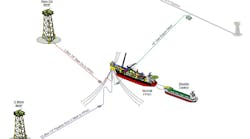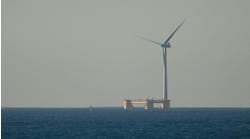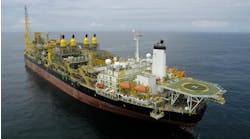Offshore staff
ABERDEEN, UK– Shell U.K. has submitted a comprehensive decommissioning program for the Brent oil and gas field in the UK northern North Sea.
A 60-day public consultation has started on the recommendations.
Brent, 115 mi (185 km) northeast of the Shetland Islands, has produced around 3 Bboe since operations started in 1976, equivalent to almost 10% of the UK’s production, Shell says.
Production from Brent Delta ceased in 2011 and from Brent Alpha and Brent Bravo in November 2014. However, production from the field will continue for several years via Brent Charlie.
Shell recommends that the upper steel jacket on the Brent Alpha platform be removed, along with the topsides of all fourBrent platforms, debris on the seafloor, and the attic oil contained within the concrete storage cells of the gravity-based structures (GBS).
It has also proposed leaving in situ the three GBSs for theBrent Bravo, Charlie, and Delta platforms and the sediment contained within their concrete storage cells; the Brent Alpha footings; and the drill cuttings piles.
This recommendation will require consultation with and support from the OSPAR Commission, which was established under the OSPAR Convention to protect the marine environment of the northeast Atlantic. Shell’s plan details various options for dealing with the 28 subsea pipelines connected to the Brent field.
Following conclusion of the public consultation period, the UK’s Business, Energy and Industrial Strategy (BEIS) will consider the recommendations and responses from the consultation. Assuming BEIS accepts the recommendations, it will seek support for the necessary derogations from the OSPAR Commission on Shell’s behalf.
Duncan Manning, Brent Decommissioning asset manager, said: “Shell has undertaken thorough analysis, extensive scientific research, and detailed consultation with over 180 stakeholder organisations over the past 10 years.
“Working within the tightly defined regulatory process, we believe that our recommendations are safe, technically achievable,environmentally sound, and financially responsible.”
Preparations for the decommissioning program started in 2006, and to date more than 300 associated studies have been completed, with the results analyzed and verified by independent scientists. Shell has also engaged with around 400 stakeholders, including governmental organizations, academics and various interest groups, such as the Scottish Fishermen’s Federation.
02/08/2017



